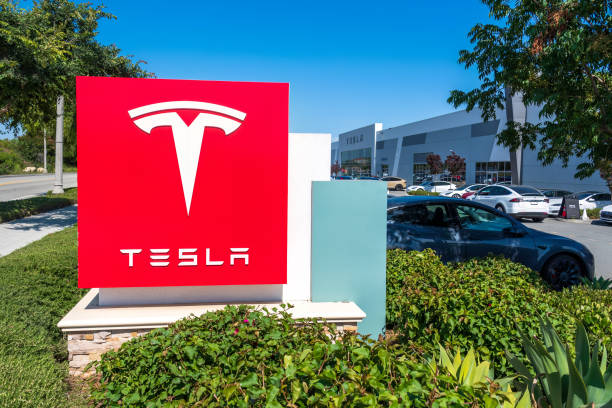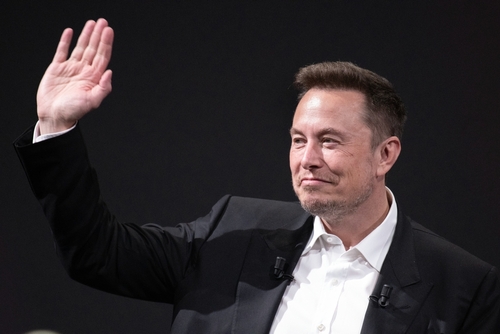Elon Musk in Politics for Three Months – Did “Tesla Killers” Really Have a Happy Q1?

TradingKey – Tesla (TSLA.US) remains the dominant force in the U.S. and global electric vehicle (EV) market. However, with Elon Musk’s transition to head the Department of Government Efficiency (DOGE), anti-Tesla sentiment surged across the U.S. and Europe — offering opportunities for so-called “Tesla killers” like Rivian and Lucid.
Musk’s aggressive push for government spending cuts and mass layoffs in the U.S., coupled with his political interventions in Europe, have sparked backlash among consumers at home and abroad. In response, protests such as "Don't Buy Tesla" gained momentum, particularly in key markets.
Even longtime Tesla bull Dan Ives, an analyst at Wedbush, has repeatedly warned that Musk's political activities are turning Tesla into a political symbol. The more Musk engages in politics via DOGE, the greater the brand damage Tesla may suffer.
While Tesla struggles with declining sales in several core markets, the broader EV industry continues to grow healthily.
Tesla Q1: Brand Crisis and Delivery Disaster
In Q1 2025, Tesla delivered only 336,681 vehicles, down 13% year-over-year, far below the expected 390,000 units — marking its worst performance since Q2 2022. Production also dropped 16%.
Dan Ives noted that while expectations were already low, the actual results were even worse than feared. He said, “We are not going to look at these numbers with rose-colored glasses…they were a disaster on every metric”.
Beyond product update cycles, Ives emphasized that the real issue lies in a crisis of brand trust.
According to a late March survey, 45% of American adults held very negative views of Musk, and 67% said they would not consider owning or leasing a Tesla — with 20% citing Musk himself as the sole reason.
Europe has become another major battleground for anti-Tesla sentiment. Tesla’s sales there fell 36% in the first quarter, while overall EV sales in the region rose 24%.
The weak delivery numbers fed into a disappointing earnings report:
- Revenue declined 9%
- Net profit plunged 39%
- Automotive revenue dropped 20%
Tesla attributed the declines to trade policy uncertainty and political sentiment.
Rivian Q1: No Gains from Tesla’s Struggles
Rivian (RIVN.US), often touted as a top “Tesla killer” due to its focus on premium electric SUVs and trucks, failed to capitalise on Tesla’s troubles.
Despite the anti-Tesla wave, Rivian underperformed other non-Tesla EV brands. It produced 14,611 vehicles and delivered just 8,640, down 36% year-over-year.
Analysts believe that economic and political uncertainties have pushed consumers toward more affordable hybrid options — a headwind for Rivian’s premium positioning.
The company cited seasonal factors, weak demand conditions, and a fire in Los Angeles that disrupted operations.
Rivian reported:
- EPS loss of $0.41, better than the expected $0.76
- Revenue of $1.24 billion, above the forecasted $1.01 billion
Though its vehicles are 100% made in the U.S., the company lowered its 2025 delivery guidance due to global trade and economic volatility.
Lucid Q1: Picking Up Tesla Customers, Record Deliveries
Unlike Rivian, Lucid (LCID.US), backed by Saudi Arabia’s Public Investment Fund, saw a surge in demand.
Lucid delivered 3,109 vehicles in Q1, up 58.1% year-over-year — setting a new record. This was largely driven by price cuts and more flexible financing plans.
Some analysts now call Lucid the best option for Tesla detractors. Lucid’s interim CEO revealed that over the past two months, many former Tesla owners had switched to Lucid — with over 75% of Gravity SUV orders coming from new customers, and more than half of all orders from ex-Tesla drivers.
Morgan Stanley analysts praised Lucid’s AI-driven strategy, suggesting that leadership changes and improved resilience against geopolitical risks could help Lucid attract capital and partnerships in both Western and Chinese markets.
Lucid Q1 reported:
- Revenue of $235 million
- Reaffirmed its target of producing 20,000 vehicles in 2025
What Lies Ahead?
The twin pressures of Trump’s tariff policies and Musk’s political image severely damaged Tesla’s brand in Q1. But both risks are shifting dramatically in Q2:
- U.S.-China tariff negotiations have made substantial progress
- Elon Musk has announced plans to return full-time as Tesla CEO
Dan Ives believes this shift in focus will mark a turning point for Tesla. He said, "This was the time to close one dark chapter."
As for concerns raised by competitors like Rivian, ongoing U.S.-China and U.S.-UK trade agreements are paving the way for smoother international trade relations.
Goldman Sachs has since lowered its probability of a U.S. recession, further easing pressure on the EV sector.








